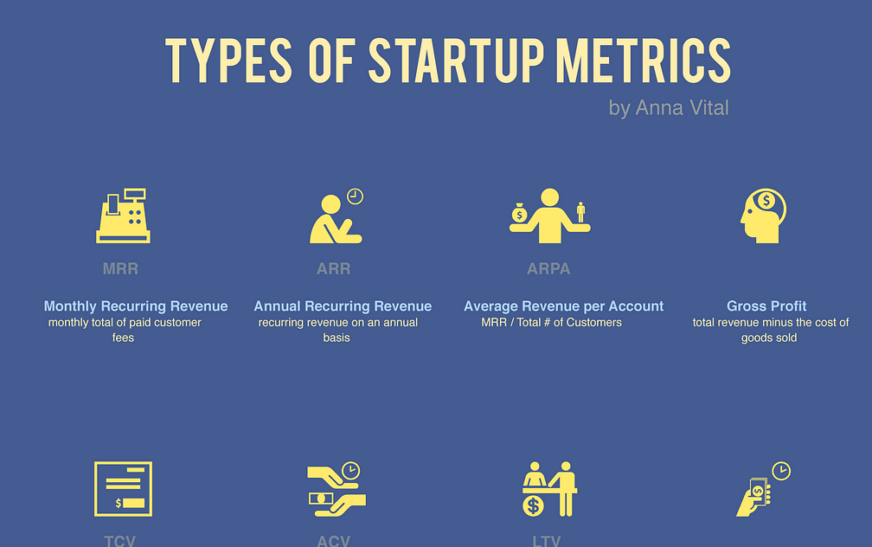Starting with Startup Funding Tips for Entrepreneurs, this discussion delves into the critical aspects of securing funding, identifying funding sources, pitching to investors, and managing startup funds effectively.
Exploring the journey of successful startups and the strategies they employed to thrive in the competitive market through proper funding.
Importance of Startup Funding
Startup funding plays a crucial role in the success and growth of a new business. Without adequate financial support, startups may struggle to develop their products, expand their operations, or reach their target market effectively.
Impact of Adequate Funding
Proper funding can have a significant impact on the trajectory of a startup, allowing it to innovate, scale, and compete in the market. Here are some key ways in which adequate funding can benefit a startup:
- Accelerated Growth: With sufficient funding, startups can invest in marketing, product development, and team expansion, leading to faster growth and market penetration.
- Risk Mitigation: Adequate funding can help startups navigate unexpected challenges or market fluctuations, reducing the risk of failure.
- Competitive Edge: Startups with proper funding can outperform competitors by investing in research, technology, and talent acquisition.
- Attracting Investors: Well-funded startups are more attractive to potential investors, increasing their chances of securing additional funding in the future.
Examples of Successful Startups
Many successful startups have thrived and achieved unicorn status due to strategic funding decisions. Here are a few examples:
1. Uber: Securing substantial funding early on allowed Uber to disrupt the traditional taxi industry and expand globally, becoming a leader in the ride-sharing market.
2. Airbnb: Adequate funding enabled Airbnb to develop its platform, scale its operations, and revolutionize the hospitality industry by connecting travelers with unique accommodation options.
3. SpaceX: With significant funding from both private investors and government contracts, SpaceX was able to develop innovative space technologies and become a key player in the aerospace industry.
Sources of Startup Funding: Startup Funding Tips For Entrepreneurs
When it comes to funding a startup, entrepreneurs have a variety of options available to them. Each source of funding comes with its own advantages and considerations, so it’s important to choose the right one based on the startup’s stage and needs.
Bootstrapping
Bootstrapping involves using personal savings, revenue from the business, or loans from friends and family to fund the startup. While this option allows for complete control over the business, it can limit growth potential.
Venture Capital
Venture capital involves raising funds from venture capital firms in exchange for equity in the startup. This option is suitable for startups with high growth potential but requires giving up some control and ownership.
Angel Investors, Startup Funding Tips for Entrepreneurs
Angel investors are individuals who provide funding to startups in exchange for equity. They often offer mentorship and guidance in addition to financial support, making them valuable partners for early-stage startups.
Crowdfunding
Crowdfunding involves raising small amounts of money from a large number of people through online platforms. This option can help validate the idea and create a community of supporters, but it requires a strong marketing effort.
Pitching for Funding

Pitching for funding is a crucial step for entrepreneurs looking to take their startup to the next level. A compelling pitch deck is essential in capturing the attention of potential investors and convincing them of the viability and potential of your business idea.
Key Components of a Compelling Pitch Deck
- Clear Problem Statement: Clearly define the problem your startup aims to solve and why it is important.
- Solution: Present your innovative solution and how it addresses the identified problem.
- Market Opportunity: Showcase the market size, growth potential, and target audience for your product or service.
- Business Model: Explain how your startup plans to generate revenue and sustain growth.
- Team: Highlight the expertise and experience of your team members that make them capable of executing the business plan.
- Financial Projections: Provide realistic financial projections that demonstrate the potential return on investment for investors.
Strategies for Effective Communication During a Pitch
- Storytelling: Craft a compelling narrative that captures the essence of your startup, its mission, and the problem it aims to solve.
- Visual Aids: Use visual elements such as graphs, charts, and images to enhance the presentation and make complex information easier to understand.
- Engagement: Keep the investors engaged by maintaining eye contact, speaking confidently, and answering questions effectively.
- Highlight Competitive Advantage: Clearly articulate what sets your startup apart from competitors and why investors should choose to invest in your venture.
Common Mistakes to Avoid When Pitching
- Lack of Preparation: Failing to thoroughly prepare for the pitch can lead to a disorganized and unconvincing presentation.
- Overcomplicating the Message: Avoid using jargon or technical language that may confuse or alienate investors.
- Ignoring Feedback: Disregarding feedback from potential investors can hinder your ability to address concerns and improve your pitch.
- Exaggerating or Misrepresenting Information: Be honest and transparent in your pitch to build trust with investors and avoid credibility issues in the future.
- Failure to Address Questions: Be prepared to answer questions confidently and concisely, demonstrating a deep understanding of your business and industry.
Managing Startup Funds
Starting and running a successful startup requires not only a great idea and strong execution but also effective management of finances. Here are some key tips on managing startup funds:
Creating a Budget and Financial Plan
Creating a budget and financial plan is crucial for keeping track of expenses and ensuring the startup stays on track financially. Here are some steps to take:
- Estimate your startup costs: Identify all the expenses involved in launching and running your startup, including one-time costs and ongoing expenses.
- Set revenue goals: Determine how much revenue you need to generate to cover your costs and achieve profitability.
- Track your expenses: Keep a close eye on your spending and regularly review your budget to make adjustments as needed.
- Plan for contingencies: It’s important to set aside funds for unexpected expenses or emergencies to avoid financial strain.
Optimizing Cash Flow and Managing Expenses
Optimizing cash flow and managing expenses effectively can help ensure the financial health of your startup. Consider the following strategies:
- Invoice promptly: Send out invoices as soon as possible to ensure timely payment from clients or customers.
- Negotiate with vendors: Look for opportunities to negotiate better terms with vendors to reduce costs.
- Control overhead costs: Keep overhead costs low by finding cost-effective solutions for office space, equipment, and other essentials.
- Monitor cash flow: Regularly track your cash flow to identify any potential issues and make adjustments to improve liquidity.
Seeking Additional Funding Rounds for Scaling
As your startup grows, you may need to consider seeking additional funding rounds to fuel expansion and scale your business. Here are some insights on when and how to approach this:
- Evaluate growth opportunities: Assess the potential for growth and expansion to determine if additional funding is necessary.
- Prepare a solid business plan: Investors will want to see a detailed business plan outlining your growth strategy and how the additional funds will be used.
- Build relationships with investors: Cultivate relationships with potential investors early on to establish trust and credibility.
- Timing is key: Consider market conditions and the overall economic climate when deciding the right time to seek additional funding rounds.
Final Review
In conclusion, mastering the art of startup funding is essential for entrepreneurs to navigate the challenging terrain of business growth and sustainability. By implementing the tips and insights shared, aspiring entrepreneurs can position themselves for success in the dynamic startup ecosystem.
FAQ Compilation
What are the different sources of startup funding?
Startup funding can come from various sources such as bootstrapping, venture capital, angel investors, and crowdfunding. Each source has its advantages and considerations for entrepreneurs to evaluate.
How can entrepreneurs effectively pitch for funding?
Entrepreneurs can create a compelling pitch deck that highlights their startup’s vision, market potential, and competitive advantage. It’s crucial to communicate these aspects clearly and concisely to investors.
When should startups consider seeking additional funding rounds for scaling?
Startups should evaluate their growth trajectory, market demand, and financial projections to determine the right timing for seeking additional funding rounds. It’s essential to plan strategically for scaling operations.







